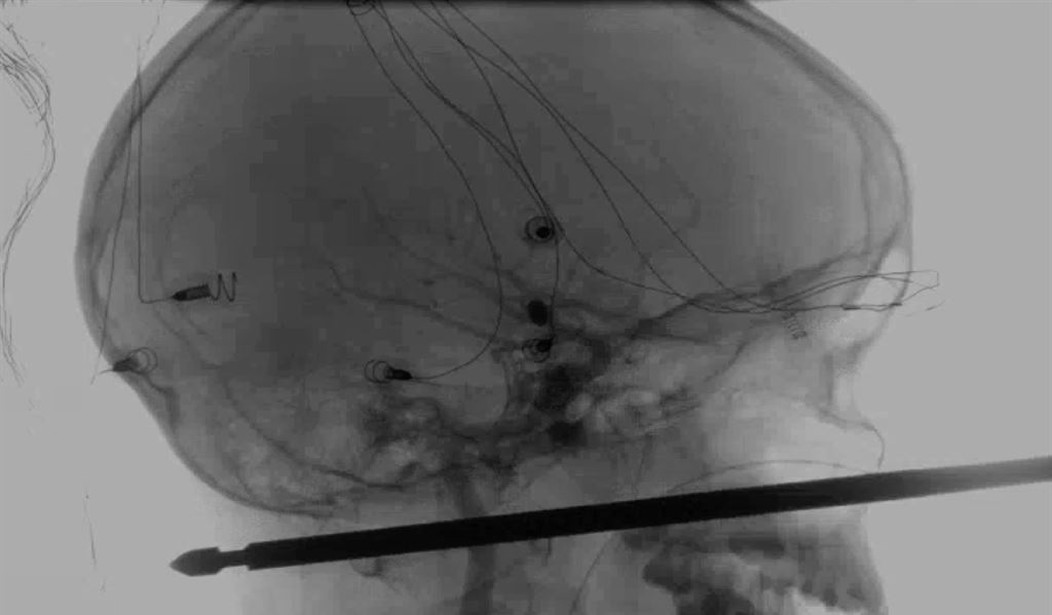Is “mind over matter” pseudoscience or scientific fact?
None other than Jesus Christ Himself is reported to have said the kingdom of heaven could grow out of a mustard seed. I’m no Biblical scholar but, to my eye, reality somehow transcends three-dimensional time and space?
Back in my teenage years, in the mid-aughts, I became acquainted with the likes of Sam Harris’ “Letter to a Christian Nation,” Christopher Hitchens’ “God Is Not Great,” and similar such works associated with the so-called New Atheist movement popular at the time.
The result was that, although I had never been particularly religious anyway, the idea that the universe is constructed solely of matter and nothing else was cemented in my mind.
Humans, per this dogma, are the incidental fleshy byproducts of evolution — a mechanistic symphony without a conductor — floating aimlessly and purposelessly on a lonely rock somewhere on the outer-third outskirts of the Milky Way. Any claims to the contrary, such as the existence of anything outside of the material realm, are tantamount to naïve religious wish-casting, and worthy of derision and scorn.
Over the past several years I have begun to reconsider the viability of materialism philosophy, particularly in light of very odd scientific research that would seem to debunk it.
Consider this curious study in which minor wounds were inflicted in the arms of volunteers, followed by measurements of the healing process. The subjects were broken up into three groups: normal time perception, artificially slowed time perception, and artificially accelerated time perception.
The results demonstrated a statistically significant psychological role in the healing process.
Via Scientific Reports (emphasis added):
In this study we wounded study participants following a standardized procedure and manipulated perceived time to test whether perceived time affected the rate of healing. We measured the amount of healing that occurred across three conditions using a within-subjects design: Slow Time (half as fast as clock time), Normal Time (clock time), and Fast Time (twice as fast as clock time). Based on the theory of mind–body unity—which posits simultaneous and bidirectional influences of mind on body and body on mind—we hypothesized that wounds would heal faster or slower when perceived time was manipulated to be experienced as longer or shorter respectively. Although the actual elapsed time was 28 min in all three conditions, significantly more healing was observed in the Normal Time condition compared to the Slow Time condition, in the Fast Time condition compared to the Normal Time condition, and in the Fast Time condition compared to the Slow Time condition. These results support the hypothesis that the effect of time on physical healing is directly affected by one’s psychological experience of time, independent of the actual elapsed time.
Or, we have this study measuring the influence of meditation on the resolution of COVID-19 symptoms.
Via Science Direct:
We found a significant inverse correlation between length of meditation practice and SARS-CoV-2 infection as well as accelerated resolution of symptomology of those infected. A meditation ‘dosing’ effect was also observed. In cultured human lung cells, blood from experienced meditators induced factors that prevented entry of pseudotyped viruses for SARS-CoV-2 spike protein of both the wild-type Wuhan-1 virus and the Delta variant. We identified and validated SERPINA5, a serine protease inhibitor, as one possible protein factor in the blood of meditators that is necessary and sufficient for limiting pseudovirus entry into cells. In summary, we conclude that meditation can enhance resiliency to viral infection and may serve as a possible adjuvant therapy in the management of the COVID-19 pandemic.
To be continued…










